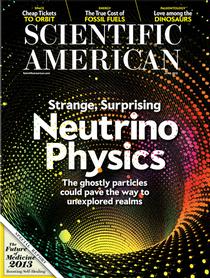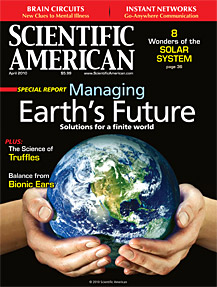Did a neurosurgeon go to heaven?
In Eben Alexander’s best-selling book Proof of Heaven: A Neurosurgeon’s Journey into the Afterlife (Simon & Schuster), he recounts his near-death experience (NDE) during a meningitis-induced coma. When I first read that Alexander’s heaven includes “a beautiful girl with high cheekbones and deep blue eyes” who offered him unconditional love, I thought, “Yeah, sure, dude. I’ve had that fantasy, too.” Yet when I met him on the set of Larry King’s new streaming-live talk show on Hulu, I realized that he genuinely believes he went to heaven. Did he?
Not likely. First, Alexander claims that his “cortex was completely shut down” and that his “near-death experience … took place not while [his] cortex was malfunctioning, but while it was simply off.” In King’s green room, I asked him how, if his brain was really nonfunctional, he could have any memory of these experiences, given that memories are a product of neural activity? He responded that he believes the mind can exist separately from the brain. How, where, I inquired? That we don’t yet know, he rejoined. The fact that mind and consciousness are not fully explained by natural forces, however, is not proof of the supernatural. In any case, there is a reason they are called near-death experiences: the people who have them are not actually dead. (continue reading…)
read or write comments (56)
How the brain produces the sense of someone present when no one is there
In the 1922 poem The Waste Land, T. S. Eliot writes, cryptically: Who is the third who always walks beside you? / When I count, there are only you and I together / But when I look ahead up the white road / There is always another one walking beside you.
In his footnotes to this verse, Eliot explained that the lines “were stimulated by the account of one of the Antarctic expeditions [Ernest Shackleton’s] … that the party of explorers, at the extremity of their strength, had the constant delusion that there was one more member than could actually be counted.”
Third man, angel, alien or deity — all are sensed presences, so I call this the sensed-presence effect. In his gripping book, The Third Man Factor (Penguin, 2009), John Geiger documents the effect in mountain climbers, solo sailors and ultraendurance athletes. He lists conditions associated with it: monotony, darkness, barren landscapes, isolation, cold, injury, dehydration, hunger, fatigue and fear. I would add sleep deprivation; I have repeatedly experienced its effects and witnessed it in others during the 3,000-mile nonstop transcontinental bicycle Race Across America. Four-time winner Jure Robic, a Slovenian soldier, recounted to the New York Times that during one race he engaged in combat a gaggle of mailboxes he was convinced were enemy troops; another year he found himself being chased by a “howling band” of black-bearded horsemen: “Mujahedeen, shooting at me. So I ride faster.” (continue reading…)
read or write comments (10)



